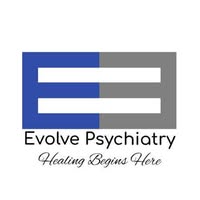In today’s fast-paced world, we often find ourselves running low on energy, struggling to focus, or feeling overwhelmed. But when does this go beyond the usual exhaustion? When does it signal something deeper—something that needs real attention? This is where the conversation around Depression vs ADHD becomes essential. Many people confuse the symptoms of both conditions, which can delay proper treatment and healing. If you’ve been feeling off, it’s time to take action, reflect honestly, and maybe even seek professional support—like the caring team at Evolve Psychiatry.
Feeling Tired or Something More?
Let’s start with a truth: mental fatigue is real. Everyone experiences stress, distractions, and burnout. But when these feelings linger, mess with your sleep, kill your motivation, or make it impossible to focus—there’s likely more at play. You might be dealing with depression, ADHD, or even both. Understanding the difference is the first step toward recovery.
What is Depression?
Depression isn’t just about feeling sad. It’s a clinical condition that affects your mood, energy, sleep, appetite, and even the way you think. People with depression often describe it as living under a dark cloud—one that doesn't go away, even when life seems “fine” on the outside.
Common symptoms include:
- Persistent sadness or emptiness
- Loss of interest in activities once enjoyed
- Fatigue or low energy, even after rest
- Trouble concentrating or making decisions
- Feelings of worthlessness or guilt
- Sleep changes—too much or too little
- Changes in appetite and weight
- Thoughts of death or suicide
Depression can sneak up quietly or hit suddenly. Either way, it’s serious, and it’s treatable. Don’t dismiss these signs as just being tired or lazy.
What is ADHD?
ADHD (Attention Deficit Hyperactivity Disorder) is usually associated with children bouncing off the walls. But many adults live with undiagnosed ADHD. For them, the condition looks different: endless mental noise, forgetfulness, chronic disorganization, and difficulty completing tasks.
Symptoms of ADHD in adults include:
- Trouble focusing or staying on task
- Easily distracted by thoughts or surroundings
- Poor time management or always feeling “late”
- Restlessness or fidgeting
- Impulsiveness, like interrupting or making quick decisions
- Difficulty finishing what you start
ADHD isn’t about lacking discipline or trying harder. It’s a brain-based condition. Many with ADHD feel frustrated because they want to get things done but just can't seem to follow through. If that sounds familiar, it’s not laziness—it could be ADHD.
Depression vs ADHD: Where’s the Line?
Here’s where things get tricky. Many symptoms overlap. For example:
- Trouble concentrating
- Forgetfulness
- Low motivation
- Restlessness
- Poor sleep
So, how do you know which one it is?
Let’s break it down:
SymptomDepressionADHDLow motivationFeels heavy and emotionalTied to boredom or distractionLack of focusComes from mental fatigue or sadnessComes from brain's need for stimulationSleep issuesOversleeping or insomniaTrouble winding down, racing thoughtsForgetfulnessDue to mental fogDue to lack of attention to detailEmotional struggleFeelings of hopelessness or guiltMood swings, frustration, impulsivity
In short: depression feels like a slowing down, while ADHD feels like being all over the place. But people can have both—what’s called comorbid ADHD and depression—which makes diagnosis even more important.
Take Charge of Your Mental Health
If you’ve been constantly tired, unmotivated, and scatterbrained, stop blaming yourself. It might not be your fault. It might not be “just stress.” It might be time to act.
At Evolve Psychiatry, we understand that the line between Depression vs ADHD is blurry. Our expert team listens—really listens—to your story. We don’t just look at symptoms; we look at you as a whole person.
Whether it’s therapy, medication, or personalized support plans, we’re here to help you find answers and start healing. You don’t have to figure it out alone.
Don’t Wait for Things to Get Worse
Mental health challenges don’t fix themselves. Ignoring symptoms can lead to more severe issues in work, relationships, and physical health. But here's the good news: both depression and ADHD are highly treatable once diagnosed properly.
Take the first step:
- Reflect on your symptoms
- Keep a journal of your daily struggles
- Talk openly with a trusted friend or family member
- Reach out to a professional, like Evolve Psychiatry
You deserve clarity. You deserve peace. And you deserve to feel in control of your mind again.
Final Thoughts
Depression vs ADHD is more than a comparison—it’s a conversation we all need to have. Whether you’re constantly tired, can’t focus, or feel like you’re running on empty, don’t ignore those signs. It might be fatigue, but it might also be something deeper.
Start listening to your mind and body. And when you're ready, take action. Because healing starts with awareness—and you don’t have to do it alone.





Comments